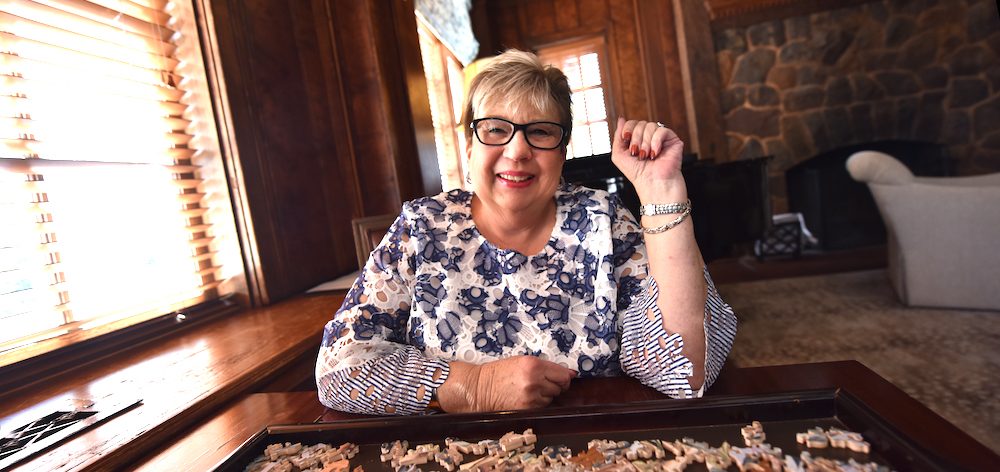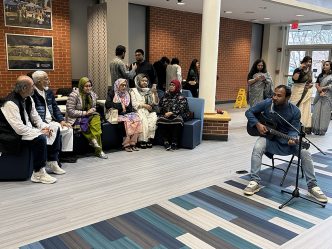Forty years ago, Ann Anderson began a journey that would take her around the world.
And it all started with a computer science degree from Augusta University.
On June 10, 1979, Anderson walked across the stage of the Bell Auditorium and became the first-ever computer science graduate of Augusta College.
She had already received an associate’s degree and was initially working at the Medical College of Georgia and then later Grady Hospital in Atlanta in the areas of research and medical technology.
But Anderson had always loved mathematics and was fascinated with the expanding field of computer science.
“I actually started college back in 1965, but I began working around that same time as well. My first real job was in research in 1969,” Anderson said. “The first thing I did was, I was in research and education support at the Medical College of Georgia. I started there and worked in the area of burns with Dr. Carl Jelenko III. He was a very gracious man and put my name on several articles that he wrote.”
Jelenko helped establish emergency medicine as a recognized specialty and was a professor of surgery and the director of the Burn Trauma Service at the Medical College of Georgia until 1978.
“In the areas of burns back then, you were back in the days when silver sulfadiazine cream was used to prevent and treat wound infections in patients with second- and third-degree burns,” Anderson said. “This was not an easy area to be in because you saw people who had lost their digits and things like that. But I got to do a lot of research in that area studying the wounds, detecting water loss and checking different salts and things like that, that were lost with a burn patient.”
Looking for a change
After staying at the Medical College of Georgia for several years, Anderson moved to Atlanta to work at Grady Hospital and Emory University on their kidney and bone marrow transplant programs, she said.
“These were the early days of transplants, when there was just T cells before the B cells,” said Anderson, explaining that T cells are immune-suppressing cells that promote tolerance of foreign tissue. “Back then, we were happy if they did not reject on the table. It was a different time.
“This was back whenever the secretary of the chairman of the department of surgery where I was working in Atlanta thought that doing transplants with other people’s organs was an abomination. Fortunately, things have changed.”
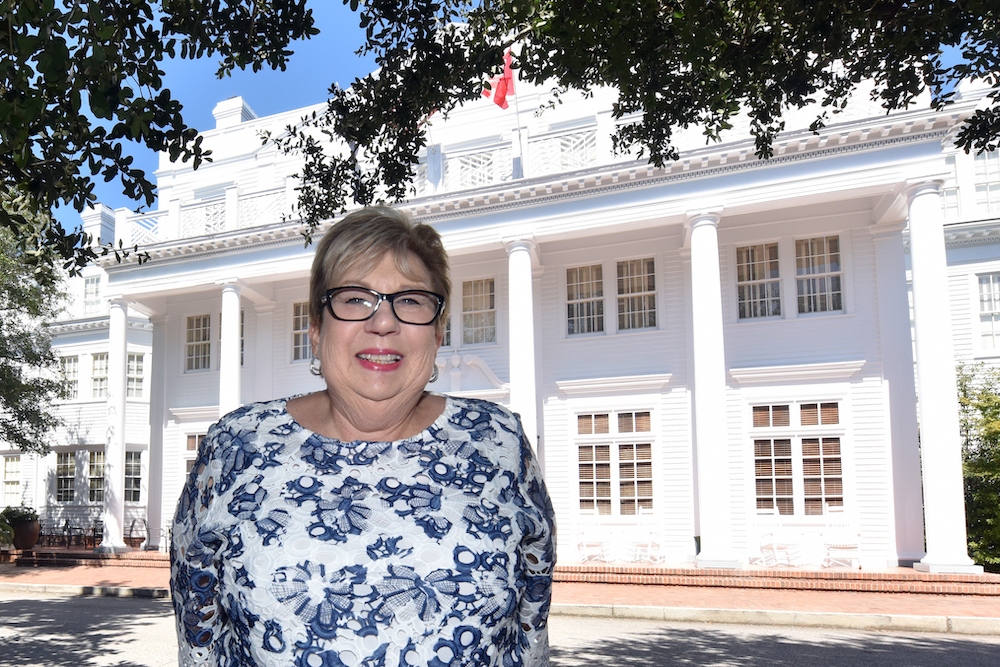
Anderson also experienced some gender discrimination early on while doing research work.
“I had the department secretary who thought I should give a male worker a raise because he had a family,” Anderson said. “But he did not do the same amount of work that this female employee did.”
She eventually left Grady and returned to Augusta to work at the Medical College of Georgia.
“I was doing some more research and education support mainly with statistics and analyzing data,” Anderson said. “In fact, I remember when the Apple computer first came out and I remember when we got a black Apple and we called it Darth Vader.”
Computer science: ‘Where the world was going’
After seeing the tremendous growth in the computer industry, Anderson decided to go back to Augusta College on a new career path.
“I always really liked math, so I went back to school and I got a degree in math and computer science in 1979,” Anderson said. “Some people might have thought it was odd for a woman to get a degree in computer science, but I didn’t think it was unusual because it was exciting. I knew that was where the world was going and I guess I really got started ahead of it.”
When asked how she felt about being the first computer science graduate from Augusta College, Anderson simply laughed.
“I had no idea I was first,” Anderson said, smiling. “I was working and I went back to school to change careers. And I’ll be honest, my career was a little bit different than other people, but I had a great time. I absolutely loved what I did.”
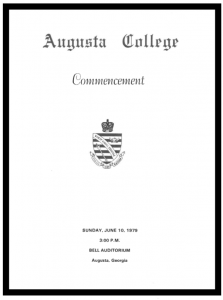
Unlike some computer science graduates whose jobs revolve around coding, Anderson’s degree took her in another direction.
“In 1984, there was this new part of BellSouth that was opening in the area of communications called BellSouth Mobility,” Anderson said. “At that time, it was going to be a niche business for the very wealthy, mainly people involved in the real-estate market, because Realtors have to be in places where there aren’t phones, so these were some of the first people looking to have cellular mobile telephones.”
BellSouth Mobility was a corporate sister of Southern Bell at the time and the company began business in Dade and Broward counties in Florida in May of 1984. It expanded to Palm Beach County in May of 1985.
“I was the company’s 75th employee,” Anderson said. “The first place the business opened was in Chicago, but we opened up the second one in Miami. I was hired to set up and give everybody personal computers and try to get a network and teach them classes. They could have any type of computer they wanted as long as it was IBM.”
Anderson also began working closely with one of BellSouth Mobility’s strategists. As a team, they provided information on the importance of cell sites, which included a tower and radio transmitting equipment.
While each cell site was an expensive endeavor, costing about $1 million, they would explain that these cell sites would reduce the number of disconnected phone calls and increase the number of calls that could be handled simultaneously.
“We’d go in and say, ‘You’ve got this number of customers, so this is how many cell sites you’re going to have to build and this is how many employees you are going to have to hire to make it successful,’” Anderson said. “So, I learned the business from end-to-end.”
Anderson said her team became highly valued in BellSouth Mobility.
“Every time there was an acquisition of another company, they would say, ‘OK, we are going to get Ann in there and she is going to be able to tell us where they are losing money and how many actual customers they have,’” Anderson said. “And that’s how I got the job that I probably loved the most in my career: a position with BellSouth International.”
Seeing the world
As a child growing up in Augusta, Anderson constantly read books and dreamed about traveling the world.
“You must understand, my father was a carpenter and my mother stayed at home with the children when we were younger,” Anderson said. “When we would travel, it would be to go see my favorite aunt who lived in Indiana. That was a big trip for us.”
So, when BellSouth was looking for qualified employees to work internationally, Anderson jumped at the opportunity.
“When they started BellSouth International, they wanted to know who were some of the best people and who was willing to go work overseas,” Anderson said. “In my life, I’ve been given opportunities and I’ve always taken them. I never believed in staying in one spot.”
Anderson quickly packed her bags and was ready to see the world.
“I’ve been all over,” Anderson said, chuckling. “It would probably be a lot easier to name where I haven’t been than where I have. I think I have been to every country in South America and I’ve been to most of the countries in Europe. I’ve been to Australia, New Zealand, Hong Kong and China.”
In fact, the first time Anderson was in China, her team was forced to leave because of the student-led demonstrations in Tiananmen Square.
“We finally went back in 1991, but I remember on my first trip over to China, I was the only Westerner on the plane and there was an older couple sitting next me,” Anderson said. “I remember the stewardess brought out my meal before the other passengers on the plane, I guess because I was a Westerner.
“Well, this little old man sitting across the row from me with his wife, he took his chopsticks and he went over to my plate and he grabbed some food and gave it to his wife to eat. I thought that was sweetest thing I ever saw.”
She also remembers the wild car rides through Shanghai.
“Shanghai is a city of 14.5 million people, 12 million bicycles and five cars,” Anderson jokingly said. “We had to be very careful because I was one of the people in those five cars.”
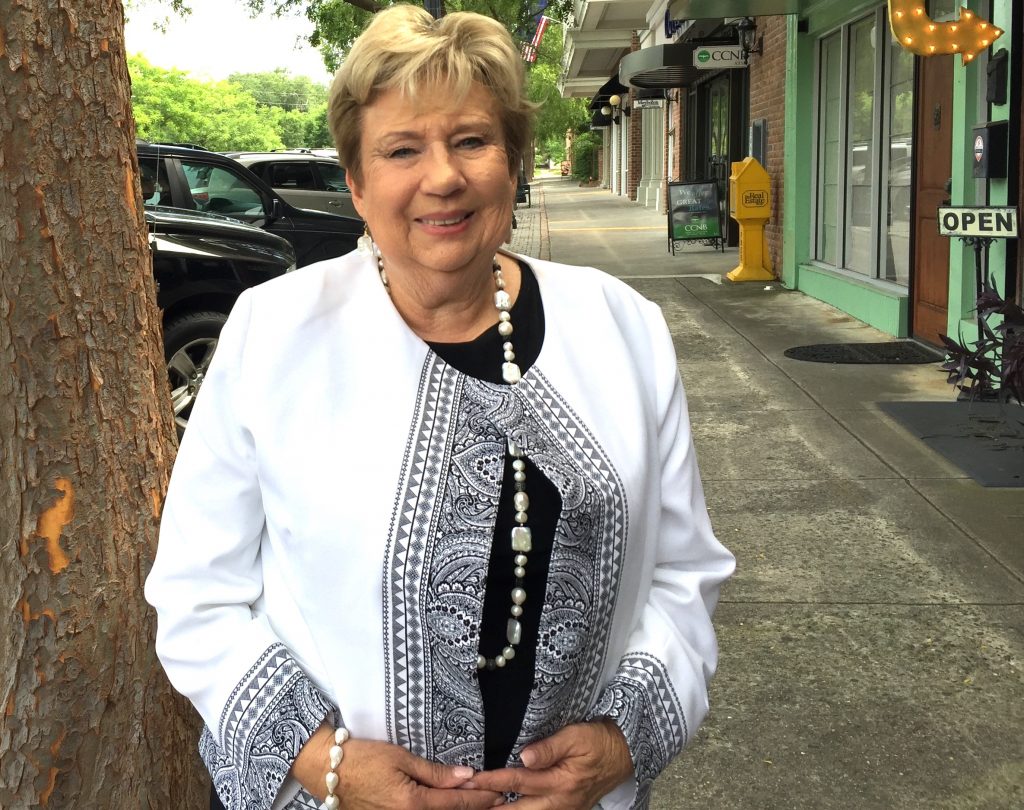
For more than two decades, Anderson met people from across the globe who opened her eyes to an entirely different world.
“You have boat people who live on the Yangtze River who have never been on land,” Anderson said. “There are more neon lights in Hong Kong than there are in Las Vegas. And going into Hong Kong’s airport is quite an experience, especially if you can sit near the back of the plane and watch the tail of the plane almost go into the water. It takes a really experienced pilot to fly into Hong Kong.”
Friends and family often ask her, what is her favorite country she visited over the years?
“I have a hard time answering that because there was something special about each place that I went,” she said. “But if you want to go somewhere where every second is a Kodak moment, you should visit New Zealand.”
A part of history
Of course, some jobs were more complicated than others, Anderson said.
“In 1992, we were in Venezuela, when Hugo Chavez and his supporters made a coup attempt,” Anderson said. “We were staying in the Eurobuilding and there was gunfire outside. We could watch the coup going on right outside our windows. But people weren’t able to go in and out of the hotel.”
That meant visitors couldn’t leave and the staff could not report to work at the hotel.
“We were basically on our own, so we went down into the kitchen and cooked dinner in the hotel. We had what we called coup stew,” Anderson said, laughing. “We had to take care of ourselves. And during that trip, I remember there were some times, just in case the gunfire started up again, I would take my pillow and my blanket and go sleep in the bathtub.”
For some people, such potential dangers would cause them to want to return home, but not Anderson.
“It could be a little scary, but part of it was history, too,” she said. “But we had good times in Venezuela, as well.”
Anderson remembered standing outside with the sun setting and meeting a group of businessmen from Venezuela who literally had a black plastic bag full of contracts that they wanted her to review.
“As the sun was setting, I remember there was this guy pushing this big wheelbarrow full of hot pink toilet paper up a hill,” Anderson said, laughing. “I’ll admit it. I took a roll of the toilet paper and brought it home with me. In fact, I used it as crepe paper for one of my nieces’ birthday parties.
“You just have to see the humor in these things and enjoy life.”
More to life than McDonald’s
Anderson said she was always amazed by some of her coworkers who never wanted to step outside their comfort zone.
“Some people would just stick to their own little group and not explore the area,” Anderson said. “Not me. I would go and introduce myself to the locals. I mean, I can hang out with my coworkers back in the States. I don’t want to stay with them when I’m traveling.
“You have to take time, no matter what you are doing, to meet the people,” Anderson added. “Part of going overseas is to learn about the people and the different cultures. There are things that are so alike and things that are so different.”
Anderson always believed if the employees didn’t enjoy working overseas, they should move back home and give someone else that opportunity.
“One of the biggest problems that we had was with these technical people who could come over and they did a good job, but they didn’t enjoy it,” Anderson said. “They probably took a huge opportunity away from someone who could have gone over there, done the same job and really enjoyed themselves.
“To me, if you are going out of the country and eating at McDonald’s, you are missing out.”
One of her favorite aspects about working overseas was traveling to other countries in her spare time, she said.
“I traveled to Antarctica to see the whales,” Anderson said. “I remember going on a cruise down the fjords in Chile with ice cutters in front and to the Galápagos Islands in the Pacific Ocean. And I loved Machu Picchu in southern Peru.
“I’ve been very lucky and it’s been a lot of fun. But it was also a lot of work. We sometimes worked six and a half days a week.”
In 2005, BellSouth sold its international branch to Telefónica, a Spanish multinational telecommunications company headquartered in Madrid. As a result, Anderson began international contract work.
“I went to Ireland from February until the end of August in 2006,” Anderson said. “Then, I went over to Puerto Rico and I was there until the end of the year. When I came back, some people from Cingular contacted me and wanted me to work for them. So, I went to Cingular and they eventually became AT&T and that’s where I retired from in 2013.”
Living the life you choose
Now, at 72, Anderson said she is extremely proud of her accomplishments in life.
“I was the first person on my father’s side of the family to ever graduate from high school,” she said. “I was also the first person on my mother’s side of the family to ever get a college degree.”
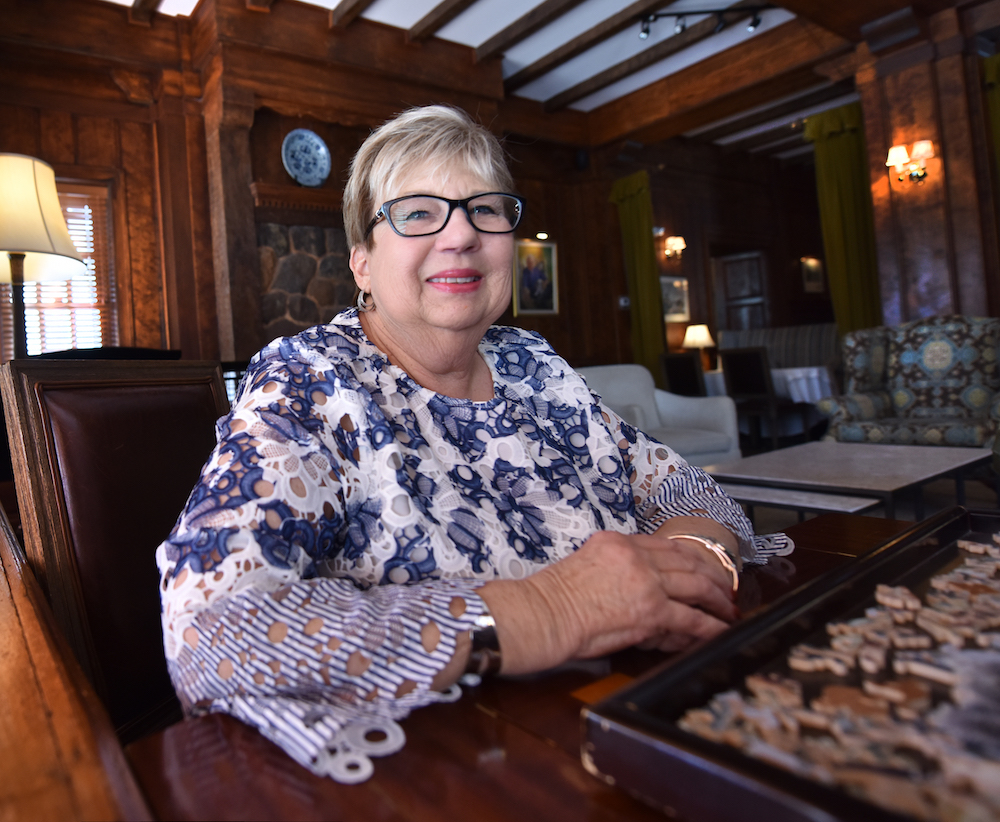
Her parents didn’t expect to see their daughter travel the world, but they never questioned her determination, Anderson said.
“My parents, who have both passed away, were very proud of me,” Anderson said. “Although, at first, when I was going to college, they couldn’t understand why I didn’t want to be something like a teacher or a bookkeeper or a secretary. They couldn’t understand why I wanted to do something so different. But that was just me.”
Anderson said she wouldn’t have it any other way.
“I was very lucky in what I got to do,” Anderson said. “You always hear that people see things with a glass half full or half empty view, but what people aren’t telling you is, it’s your choice as to how you see the glass. You decide which one it is.”
Over the years, Anderson said she has frequently been asked why she never married or had children.
“The thing was, the ones who I wanted to marry didn’t want to marry me and the ones who wanted to marry me, I didn’t want to marry,” Anderson said, laughing. “But the truth is, a lot of the things that I’ve done in life, I wouldn’t have been able to do if I was married. I had a lot of freedom.”
After retiring from AT&T, Anderson decided to move to Aiken to be closer to her nieces and nephews and her extended family still living in the Augusta area.
“I wanted to retire in Panama,” Anderson said, chuckling again. “But, to be honest, I’m very happy to be living close to my family. I love it, and the truth is, your life is what you make it.
“You can go out there and you can live a boring life or you can live an exciting life because you can make it exciting. Anyone can. It’s up to you. The secret is, just love what you do.”
 Augusta University
Augusta University
